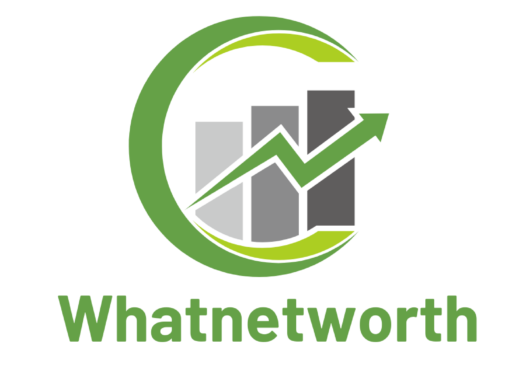Managing your personal finances has never been more crucial than in 2025. With global economic shifts, technological advancements, and inflation impacting our daily lives, building wealth requires a proactive and strategic approach. Whether you’re just starting out or looking to refine your financial habits, these 10 strategies will help you take control of your financial future.
1. Set Clear Financial Goals
If you don’t know where you’re going, how will you get there? Setting clear financial goals is the foundation of wealth-building.
Short-term goals
Short-term goals include things like saving for a vacation, building an emergency fund, or paying off a specific debt. These typically span from a few months to a couple of years.
Long-term goals
Long-term goals focus on bigger milestones, such as buying a home, funding your child’s education, or retiring comfortably. Write these goals down and revisit them regularly to track your progress.
2. Create a Realistic Budget
A budget isn’t just a spreadsheet—it’s your roadmap to financial freedom.
Benefits of budgeting
Budgeting helps you see where your money is going, identify wasteful spending, and allocate funds toward your goals. It’s empowering to know you’re in charge of your finances.
Best budgeting tools and apps in 2025
In 2025, budgeting tools like YNAB (You Need a Budget), Mint, and Personal Capital continue to top the charts for their user-friendly interfaces and advanced features. Choose one that suits your lifestyle.
3. Build an Emergency Fund
Life happens, and an emergency fund is your financial cushion.
What is an emergency fund?
This is a reserve of money set aside for unforeseen expenses, such as medical bills, car repairs, or job loss.
How much should you save?
Experts recommend saving three to six months’ worth of living expenses. Start small, and consistently contribute until you reach your goal.
4. Minimize Debt
Debt is like a ball and chain for your financial growth.
Prioritize high-interest debts
Tackle debts with the highest interest rates first, such as credit card debt. This strategy, known as the avalanche method, saves you the most money in the long run.
Strategies to avoid new debt
Stick to your budget, avoid impulse purchases, and always pay more than the minimum on your credit card bills.
5. Invest in Your Future
Your money should work for you while you sleep.
Diversify your investments
Spread your money across various asset classes, such as stocks, bonds, and real estate. This reduces risk and maximizes potential returns.
Importance of retirement accounts in 2025
With uncertainty around pensions and social security, contributing to retirement accounts like 401(k)s and IRAs is more vital than ever. Take full advantage of employer-matching programs.
6. Master the Art of Saving
Saving isn’t just about discipline—it’s about strategy.
Automate your savings
Set up automatic transfers from your paycheck to your savings account. This “pay yourself first” approach ensures consistent contributions.
High-yield savings accounts explained
High-yield savings accounts offer higher interest rates than traditional accounts, helping your money grow faster without additional effort.
One income stream is good; multiple income streams are better.
Explore side hustles
From freelancing to starting an online store, side hustles provide extra cash flow and can even turn into full-time ventures.
Leverage passive income opportunities
Investing in dividend-paying stocks, rental properties, or creating digital products are excellent ways to generate income while you focus on other pursuits.
8. Learn About Tax Planning
Paying taxes is inevitable, but smart planning can save you money.
Maximize tax deductions
Deductible expenses like charitable donations, home office costs, and medical expenses can significantly lower your tax bill.
Understand tax-efficient investing
Invest in tax-advantaged accounts and use strategies like tax-loss harvesting to minimize the taxes you owe on your investments.
9. Protect Your Wealth
Building wealth is only half the battle—you also need to protect it.
The role of insurance in wealth protection
Ensure you’re adequately covered with health, life, and property insurance. Insurance is the safety net that prevents financial ruin.
Estate planning basics
Drafting a will, assigning power of attorney, and creating a trust ensure your wealth is distributed according to your wishes.
10. Continuously Educate Yourself
Knowledge is the key to financial empowerment.
Top personal finance books and courses for 2025
Books like The Simple Path to Wealth by JL Collins and courses from platforms like Udemy or Coursera can expand your financial knowledge.
How financial literacy impacts wealth
The more you know, the better decisions you can make. Continuous learning helps you adapt to changing financial landscapes and stay ahead of the curve.
Conclusion
Building wealth in 2025 is all about setting clear goals, being disciplined, and continuously learning. By following these strategies, you can navigate the challenges of today’s economy and achieve financial independence. Remember, the best time to start was yesterday—the second best time is now.
FAQs
1. What is the 50/30/20 rule in budgeting?
The 50/30/20 rule allocates 50% of your income to needs, 30% to wants, and 20% to savings and debt repayment.
2. How much should I save for an emergency fund?
Aim to save three to six months’ worth of living expenses.
3. What are some beginner-friendly investment options?
Beginner-friendly options include index funds, ETFs, and robo-advisors.
4. How can I minimize taxes on my investments?
Invest in tax-advantaged accounts and explore tax-loss harvesting strategies.
5. Why is financial literacy important for building wealth?
Financial literacy empowers you to make informed decisions, avoid pitfalls, and maximize opportunities for growth.
